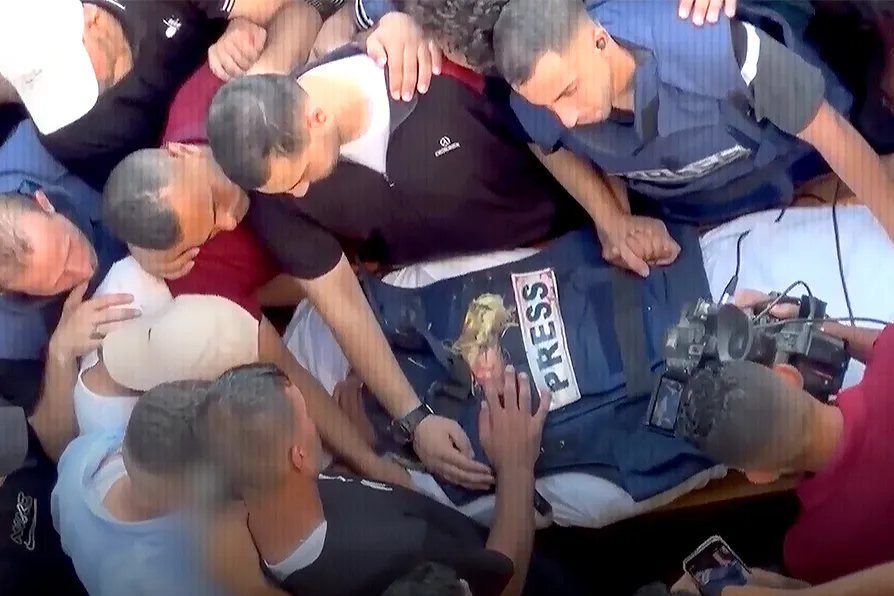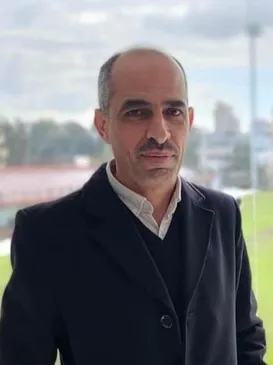CHRIS SEARLE speaks to Nicaraguan guitarist OMAR RIOS MELENDEZ
JOHN HAWKINS recommends an important new film - that can be shared for free - to the Palestine Solidarity Movement and the NUJ

 [Pic: Courtesy of Brave new Films]
[Pic: Courtesy of Brave new Films]
ON November 19 2023, Belal Jadallah, the founding director of Press House, Palestine, was killed by an Israeli air strike as he tried to evacuate Gaza City. A decade of advocacy for independent Palestinian journalism ended in rubble. His death, featured in Robert Greenwald’s unflinching documentary Gaza: Journalists Under Fire, encapsulates the moral and material stakes of press freedom under siege.

In Gaza, journalism has not just been censored — it has been targeted, incinerated and rendered lethal. Since October 7 2023, more than 178 journalists have been killed in Gaza, according to the Committee to Protect Journalists (CPJ), marking the deadliest war for media workers in modern history, and surpassing the combined tolls of World War I, World War II and the Vietnam war.
An important new film is available that documents the murderous rage Israeli forces have for those who would present a pro-Palestinian view, and show the world the carnage they have wrought. That film, Gaza: Journalists Under Fire, released by Brave New Films and directed by Robert Greenwald, begins by showing the faces of several Palestinian media members killed, including Bilal Jadallah, Heba al-Abadla, who worked as a host for al-Azhar radio, and Sabrine al-Abadla, a Palestinian woman from Rafah, Gaza: a wife, mother of two, and the sister of slain journalist Heba al-Abadla.
The film is fast-paced, graphic, violent and full of dark energy. The handheld cameras bring realism, the interviews are testimonials to suffering and hopeless survival, and the faces display trauma, hunger and thirst. From drone strikes to home demolitions, the Israeli Defence Forces (IDF) have systematically pursued a campaign to destroy not only the Palestinian population but also those who document their suffering. Journalists were killed while sheltering in tents, sleeping beside their children or fleeing in press-marked vehicles.
At the same time, Israeli surveillance technologies — some of the most advanced on the planet — saturate both Gaza and Israel, creating an omniscient system that paradoxically claims ignorance after every strike. This is the panopticon of a state that sees all but denies accountability.
Israel’s assault on press freedom does not end at the Gaza border. The bombing of Al-Jazeera’s offices and the broader crackdown on pro-Palestinian voices globally — including the arrest of students and journalists at Columbia University and other campuses — reveal a co-ordinated effort to suppress dissent across borders. This transnational silencing extends to Israeli dissidents: Greenwald’s film includes testimony from Jewish Israelis who refuse IDF enlistment, denouncing the genocide in their name.
To contextualise the broader assault, one must also account for the violence Palestinian journalists face from within. As detailed by Reporters Without Borders, Hamas and Fatah factions have threatened, beaten and even kidnapped journalists whose reporting contradicted partisan lines. Public media controlled by the Palestinian Authority has become a site of factional warfare, while foreign reporters are used as political bargaining chips. Journalists in Gaza are caught in a double-bind of surveillance and sacrifice: to speak is to risk death, to remain silent is to abandon truth.
Greenwald’s film serves not just as a documentary, but as a document — a record for future tribunals and collective conscience. Its images of smouldering press vests, of families identifying remains, of children trying to explain who their parents were, are more than symbols. They are exhibits. To kill journalists is not just to silence a profession; it is to assault the very means by which we imagine justice.
Greenwald and BNF create free documentary films that inform the public, challenge corporate media, and motivate people to take action on social issues. Gaza: Journalists Under Fire is an important film to share with readers, activists in the Palestine Solidarity movement, and the labour movement at large. View the trailer. Register. Share the film. Spread the word.
To view, download and share this film go to bravenewfilms.org.










